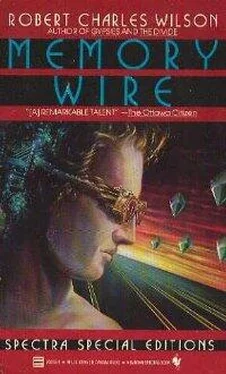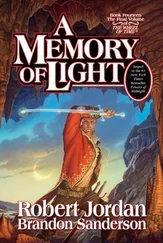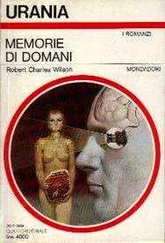Robert Wilson - Memory Wire
Здесь есть возможность читать онлайн «Robert Wilson - Memory Wire» весь текст электронной книги совершенно бесплатно (целиком полную версию без сокращений). В некоторых случаях можно слушать аудио, скачать через торрент в формате fb2 и присутствует краткое содержание. Год выпуска: 1987, ISBN: 1987, Издательство: Bantam Spectra, Жанр: Фантастика и фэнтези, на английском языке. Описание произведения, (предисловие) а так же отзывы посетителей доступны на портале библиотеки ЛибКат.
- Название:Memory Wire
- Автор:
- Издательство:Bantam Spectra
- Жанр:
- Год:1987
- ISBN:978-0-553-26853-9
- Рейтинг книги:4 / 5. Голосов: 1
-
Избранное:Добавить в избранное
- Отзывы:
-
Ваша оценка:
- 80
- 1
- 2
- 3
- 4
- 5
Memory Wire: краткое содержание, описание и аннотация
Предлагаем к чтению аннотацию, описание, краткое содержание или предисловие (зависит от того, что написал сам автор книги «Memory Wire»). Если вы не нашли необходимую информацию о книге — напишите в комментариях, мы постараемся отыскать её.
Memory Wire — читать онлайн бесплатно полную книгу (весь текст) целиком
Ниже представлен текст книги, разбитый по страницам. Система сохранения места последней прочитанной страницы, позволяет с удобством читать онлайн бесплатно книгу «Memory Wire», без необходимости каждый раз заново искать на чём Вы остановились. Поставьте закладку, и сможете в любой момент перейти на страницу, на которой закончили чтение.
Интервал:
Закладка:
She moved to the kitchen and fried an egg for Byron over the old electric grill. It was the last of their food.
Byron was wearing khaki fatigue pants and his moth-eaten combat jacket. She looked at him but could find nothing to say. She had not talked to him much—really talked—since Belem. Some barrier of guilt or shame had come down between them. She hadn’t even hinted at what she had seen in her ’lith trance, the complexities of time and history, the world’s or hers. When he finished eating, he stood up and hooked his eyeglasses back of his ears. He was going out, he said.
“Where to?”
“Making contacts,” he said vaguely. “We need cash if we’re going to stay here. There are people who owe me.”
“You have to go?” He nodded.
“Well,” she said. “Be careful.”
He shrugged.
Being alone was the worst thing.
It surprised her, how much she hated it. Better to have things to do. Keeping busy helped.
Byron had left her grocery money. So she would shop, she thought, wander out along the market canal to the big stalls by the tidal dam. That would be good. She tucked the cash into her shirt pocket and buttoned it. Check the cooler, she thought. Cheap rental cooler, came with this cheap pontoon shack. There was a bottle of fresh water, a loaf of stale bread. They needed, let’s see, fruit, vegetables, maybe even a little meat. Something to keep body and soul together.
She had skipped her own breakfast.
The market canal, then. But first she stepped back into the small room she had made her own, regarded the tousled bed and, more carefully, the antique Salvation Army dresser. Idly, she pulled open the top drawer.
The Brazilian stone was inside.
It looked small and unprepossessing in a nest of her clothes. Ordinary… until you looked closely at it, allowed its angles to seduce the eye, stared until you couldn’t stop staring. A part of her was tempted to pick it up.
A part was not. She slammed shut the drawer.
She had regained a sense of its alienness. It was the stone, she thought, that had driven Keller away. In that moment in the hotel room in Belem, she had seen into the heart of him, the terrible guilt he had hoarded all these years. The dying woman in Rondonia: Meg, her name was. His hesitation. Worse, the caustic sense of his own cowardice.
She understood, of course. It was not a difficult sin to forgive.
But he could not bear that she had seen.
And there was the rest of it. The little girl, the fire, the terrible man Carlos. She had lost so much: not just Ray but a sense of purpose, her intimacy with the stones, the idea of a future…
She put it out of her mind. She would think about it later. She left the float, double-locked the door, joined the crowds on the pontoon walkway beside the big canal. The sun was bright and she held up her face to it, eyes squeezed shut. She wished she could see the ocean.
Walking felt so good that she forgot about the shopping. She walked past the big stalls with their colorful awnings, past the market boats moored against the boardwalk, turning instinctively toward the sea.
The walkway looped north and parallel to the seawall. She climbed a set of chain-link risers until she was level with the broad concrete lip of the dam. Public Works property, isolated in its churning moat of floodwater, huge turbines down there somewhere. To the south she could see a line of abandoned factories and warehouses, waste stacks starkly black against the cloudless sky. To the east, across the tangle of the Floats, a hint of the mainland; the razorback San Gabriels. North, more boat shanties … the tidal dam tapering landward. And to the west there was the sea.
Gulls circled overhead and dive-bombed a refuse boat.
The wind smelled of salt and sea wrack. She should have brought a sweater.
Keller was gone, of course. The scary thing was that she both knew it and understood it. Because of what she had seen, he could not bear her presence. It was logical and inevitable.
But she felt the loss more deeply than she could have anticipated.
Funny how things changed. For a while she had known what she wanted. She had wanted the mystery of the dream-stone; she had wanted a door into her past. But it was like that proverb about answered prayers. She understood more about the Exotics, probably, than anyone outside the federal research programs: their origins, their history. They were vivid in her mind even yet. But there was still something fundamentally alien about them, some profound dissonance between their world and hers. She felt it, a stab of poignancy inside her, a silence where there might have been voices.
The mystery of her own past was just as obdurate. She was the little girl, of course: the little girl was Teresa. Teresa before the fire. She knew that now. But knowing was not enough. Memory was the memory of old pain. What she wanted, she realized, was healing. But the ’lith couldn’t do that. The stone only remembered. Healing, it seemed to imply, was up to her: some act of reconciliation she could not begin to imagine.
Maybe there was no such thing. Maybe the past was always and only the past. Taunting, fixed, unassailable. You couldn’t talk to the past.
She walked north through unfamiliar floats. She was not sure where she was going. She just walked—“following her feet,” Rosita used to say. Her feet carried her down pontoon bridges, past crowded market stalls. She paid no attention to the Spanish and English voices swirling around her. She thought a little about wanting and getting. The paradox of it. Wanting the dreamstone, she had found Keller. Now she wanted Keller… but the stone had driven him away.
The past had driven him away. “I’m sorry, Ray.”
She was embarrassed to realize she had said it out loud. But only the gulls overheard.
But now she had come to a place that triggered her memory. She suppressed the sense of familiarity, but her heart beat harder. She had come here for some reason. This was the place her feet had led her. Wise feet. But it was best not to think too hard about it.
The float shack had not changed much. The same dangerous-seeming list, the same bilge pump gushing oily water into a waste canal. She descended an ancient flight of chain-link stairs to the door and knocked, breathless.
The old, hollow man was older, hollower. She was surprised that he recognized her. His eyes narrowed in stale amusement from the dark frame of his doorway. “You,” he said.
He still kept the pills at the back.
CHAPTER 18
1. There was still the possibility of selling the stone. Byron was in no position to grow copies; he dared not risk even a visit to his basement lab in the Floats. They had only the single ’lith, and he was not sure how Teresa would feel about him selling it… but that was a problem he could deal with later. Right now they needed money.
He hired a canalboat and cruised until he found a functioning Public Works phone booth. The call code he thumbed in was private, but he was not surprised when it failed to enter. There was an ominous pause, then a Bell/Calstate symbol in crude pixels and the scrolling message: The number you have entered is out of service. Please hold and your call will be rerouted.
To the Agencies, Byron thought grimly. He hammered the Escapekey and climbed back into his rented barque. Within minutes he was lost in traffic.
At a second booth deep in the factory district, he placed another call, strictly inside the Floats exchange: a friend, a local artist named Montoya. Cruz Wexler’s estate in Carmel was off the optic lines, Byron said, and did Montoya have any idea why?
Montoya became wide-eyed. “It was maybe a stupid idea to call him. You just back in town? The Agencies raided Wexler weeks ago. The building is closed up and his files are in custody.”
Читать дальшеИнтервал:
Закладка:
Похожие книги на «Memory Wire»
Представляем Вашему вниманию похожие книги на «Memory Wire» списком для выбора. Мы отобрали схожую по названию и смыслу литературу в надежде предоставить читателям больше вариантов отыскать новые, интересные, ещё непрочитанные произведения.
Обсуждение, отзывы о книге «Memory Wire» и просто собственные мнения читателей. Оставьте ваши комментарии, напишите, что Вы думаете о произведении, его смысле или главных героях. Укажите что конкретно понравилось, а что нет, и почему Вы так считаете.












